#cloud and devops services
Explore tagged Tumblr posts
Text
Unlock Agility and Automation with Tailored Cloud and DevOps Services
Our expert cloud and DevOps services streamline development, automate workflows, and improve scalability—empowering your team to innovate faster and reduce time-to-market. Transform your infrastructure with solutions designed for speed, efficiency, and growth.
0 notes
Text
#cloud services#devops solutions#cloud computing#infrastructure automation#CI/CD pipeline#cloud and devops services#cloud migration#enterprise devops#cloud security#cloud-native development#cloud deployment services#continuous delivery#cloud consulting services#managed cloud services#devops consulting company#hybrid cloud solutions#cloud optimization#instep technologies
0 notes
Text
Secure and Scalable Cloud Server Management at Atcuality
For businesses seeking to enhance scalability and maintain top-tier security, Atcuality provides unparalleled cloud server management services. Our solutions cover all aspects of cloud server maintenance, including load balancing, patch management, data backups, and disaster recovery planning. Our experienced professionals work with cutting-edge tools to ensure that your servers are secure, efficient, and scalable to meet changing business needs. Whether you operate in e-commerce, finance, or technology, we tailor our services to align with your operational goals. With Atcuality as your trusted partner, you can focus on driving growth while we handle the technical complexities of cloud management.
#seo marketing#seo services#artificial intelligence#azure cloud services#seo agency#digital marketing#seo company#iot applications#ai powered application#amazon web services#ai applications#virtual reality#augmented reality agency#augmented human c4 621#augmented and virtual reality market#augmented intelligence#augmented reality#cloud security services#cloud computing#cloud services#cloud service provider#cloud server hosting#software#devops#information technology#cash collection application#task management#blockchain#web developing company#web development
2 notes
·
View notes
Text
9 Reasons Why DevOps is Essential for Modern Software Development
Close to 99% of people who have used DevOps said that it had a positive impact on their organisation. DevOps is a methodology that bridges the gap between development and operations, enabling faster releases, better collaboration, and improved software quality.
DevOps has revolutionised software development as traditional software development models often struggle with slow deployments, miscommunication between teams, and operational bottlenecks.
DevOps is way more than just a tool, it is a cultural shift that focuses on automation, continuous integration (CI), continuous delivery (CD), and collaboration. There is a high demand for Top DevOps Consulting Companies in NCR, Bangalore, Pune, and other cities as organisations benefit a lot from this approach and are adopting it rapidly.
Here are 9 reasons why DevOps is absolutely essential for modern software development.
1. Faster Software Delivery
Everyone is tired of the delays in the completion and delivery of software. DevOps helps accelerate the software development lifecycle. By integrating continuous integration and continuous deployment (CI/CD) pipelines, DevOps automates testing and deployment, allowing businesses to release updates faster and more frequently.
This rapid delivery ensures that new features, bug fixes, and security patches reach users without unnecessary delays.
2. Improved Collaboration Between Teams
Traditional software development often leads to siloed teams, where developers and operations work separately, leading to communication gaps and inefficiencies. DevOps breaks down these barriers by encouraging collaboration and shared responsibility between teams. Developers, testers, and operations professionals work together, leading to a smoother workflow and faster problem resolution.
3. Enhanced Software Quality
If the software is being delivered on time, then it doesn't mean there will be any compromise in the software quality. Frequent releases can sometimes lead to software instability, but DevOps mitigates this risk by using automated testing, code reviews, and continuous monitoring into the development cycle. This practice helps identify bugs early, ensuring that only high-quality code is deployed. This results in fewer post-release issues and a better user experience.
4. Increased Deployment Frequency
DevOps enables businesses to move away from large, infrequent releases to smaller, incremental deployments. Instead of launching updates once every few months, organisations can deploy changes multiple times a day. This is especially crucial for SaaS companies and cloud-based applications that require real-time updates and quick bug fixes.
5. Reduced Failures and Rollbacks
Frequent deployments can introduce errors, but DevOps minimises failures by implementing continuous testing and automated rollback mechanisms. If an update introduces a bug, automated rollbacks ensure that the previous stable version is restored without affecting users. This reduces downtime and enhances application stability.
6. Better Security and Compliance
Security is a major concern in modern software development. DevOps incorporates DevSecOps, a security-focused approach that integrates security checks into every stage of the development cycle. Automated security scanning, compliance checks, and vulnerability assessments ensure that software meets industry standards and regulatory requirements. This proactive approach reduces the risk of cyberattacks and data breaches.
7. Increased Efficiency with Automation
Manual processes in traditional development are time-consuming and error-prone. As technology is evolving, automation is becoming necessary in various aspects of software development. DevOps automates code integration, testing, deployment, and monitoring, freeing up developers to focus on innovation. There are various DevOps tools that simplify workflows, leading to higher efficiency and lower operational costs.
8. Scalability and Flexibility
Modern applications must handle high traffic loads and sudden demand spikes. DevOps, combined with cloud computing, allows businesses to scale resources dynamically. There are various Cloud Cost Optimisation Services that ensure the software is delivered on time and can also adjust according to demand. Automated infrastructure management tools enable seamless scaling, ensuring applications remain highly available and perform even under peak loads.
9. Enhanced Customer Satisfaction
A faster and more stable software delivery process directly impacts customer experience. DevOps ensures that bugs are fixed quickly, updates are rolled out efficiently, and downtime is minimised. Continuous monitoring and feedback loops help organisations understand user needs, leading to customer-centric improvements and higher user retention rates.
Conclusion
DevOps is no longer just an option; it is a necessity for modern software development. Whether you're a startup or an enterprise, adopting DevOps can revolutionise your software development process and drive business success. If your organisation hasn't embraced DevOps yet, now is the perfect time to make the shift and experience the massive change!
1 note
·
View note
Text
Uncover the power of AWS with our carousel of key findings! Dive into essential AWS statistics and unlock insights you didn't know you needed.



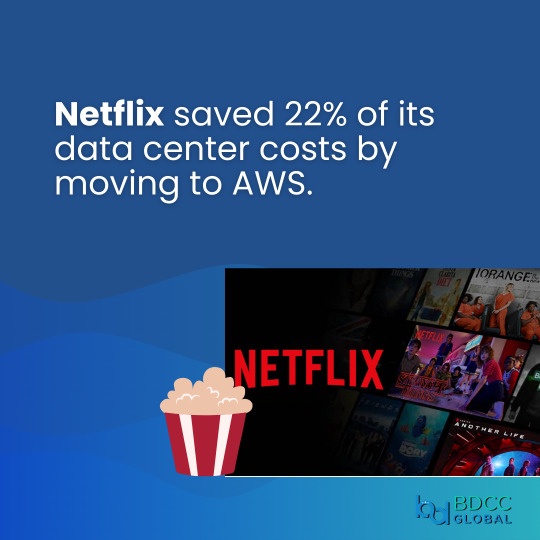
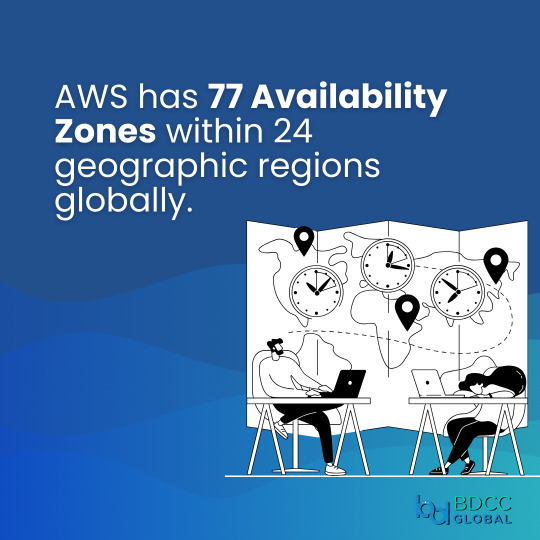
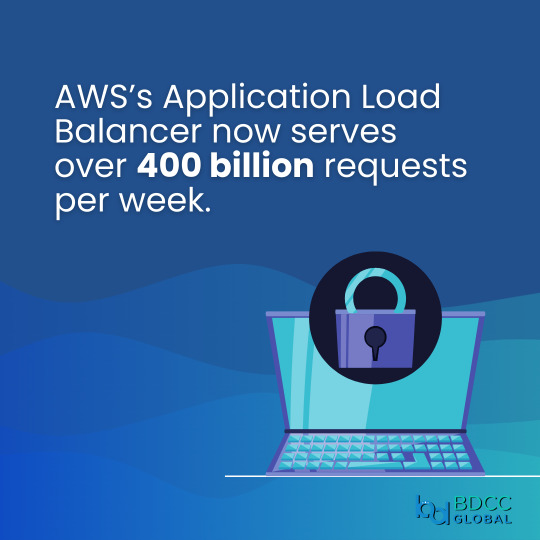
4 notes
·
View notes
Text
Journey to Devops
The concept of “DevOps” has been gaining traction in the IT sector for a couple of years. It involves promoting teamwork and interaction, between software developers and IT operations groups to enhance the speed and reliability of software delivery. This strategy has become widely accepted as companies strive to provide software to meet customer needs and maintain an edge, in the industry. In this article we will explore the elements of becoming a DevOps Engineer.
Step 1: Get familiar with the basics of Software Development and IT Operations:
In order to pursue a career as a DevOps Engineer it is crucial to possess a grasp of software development and IT operations. Familiarity with programming languages like Python, Java, Ruby or PHP is essential. Additionally, having knowledge about operating systems, databases and networking is vital.
Step 2: Learn the principles of DevOps:
It is crucial to comprehend and apply the principles of DevOps. Automation, continuous integration, continuous deployment and continuous monitoring are aspects that need to be understood and implemented. It is vital to learn how these principles function and how to carry them out efficiently.
Step 3: Familiarize yourself with the DevOps toolchain:
Git: Git, a distributed version control system is extensively utilized by DevOps teams, for code repository management. It aids in monitoring code alterations facilitating collaboration, among team members and preserving a record of modifications made to the codebase.
Ansible: Ansible is an open source tool used for managing configurations deploying applications and automating tasks. It simplifies infrastructure management. Saves time when performing tasks.
Docker: Docker, on the other hand is a platform for containerization that allows DevOps engineers to bundle applications and dependencies into containers. This ensures consistency and compatibility across environments from development, to production.
Kubernetes: Kubernetes is an open-source container orchestration platform that helps manage and scale containers. It helps automate the deployment, scaling, and management of applications and micro-services.
Jenkins: Jenkins is an open-source automation server that helps automate the process of building, testing, and deploying software. It helps to automate repetitive tasks and improve the speed and efficiency of the software delivery process.
Nagios: Nagios is an open-source monitoring tool that helps us monitor the health and performance of our IT infrastructure. It also helps us to identify and resolve issues in real-time and ensure the high availability and reliability of IT systems as well.
Terraform: Terraform is an infrastructure as code (IAC) tool that helps manage and provision IT infrastructure. It helps us automate the process of provisioning and configuring IT resources and ensures consistency between development and production environments.
Step 4: Gain practical experience:
The best way to gain practical experience is by working on real projects and bootcamps. You can start by contributing to open-source projects or participating in coding challenges and hackathons. You can also attend workshops and online courses to improve your skills.
Step 5: Get certified:
Getting certified in DevOps can help you stand out from the crowd and showcase your expertise to various people. Some of the most popular certifications are:
Certified Kubernetes Administrator (CKA)
AWS Certified DevOps Engineer
Microsoft Certified: Azure DevOps Engineer Expert
AWS Certified Cloud Practitioner
Step 6: Build a strong professional network:
Networking is one of the most important parts of becoming a DevOps Engineer. You can join online communities, attend conferences, join webinars and connect with other professionals in the field. This will help you stay up-to-date with the latest developments and also help you find job opportunities and success.
Conclusion:
You can start your journey towards a successful career in DevOps. The most important thing is to be passionate about your work and continuously learn and improve your skills. With the right skills, experience, and network, you can achieve great success in this field and earn valuable experience.
2 notes
·
View notes
Text
Azure’s Evolution: What Every IT Pro Should Know About Microsoft’s Cloud
IT professionals need to keep ahead of the curve in the ever changing world of technology today. The cloud has become an integral part of modern IT infrastructure, and one of the leading players in this domain is Microsoft Azure. Azure’s evolution over the years has been nothing short of remarkable, making it essential for IT pros to understand its journey and keep pace with its innovations. In this blog, we’ll take you on a journey through Azure’s transformation, exploring its history, service portfolio, global reach, security measures, and much more. By the end of this article, you’ll have a comprehensive understanding of what every IT pro should know about Microsoft’s cloud platform.
Historical Overview
Azure’s Humble Beginnings
Microsoft Azure was officially launched in February 2010 as “Windows Azure.” It began as a platform-as-a-service (PaaS) offering primarily focused on providing Windows-based cloud services.
The Azure Branding Shift
In 2014, Microsoft rebranded Windows Azure to Microsoft Azure to reflect its broader support for various operating systems, programming languages, and frameworks. This rebranding marked a significant shift in Azure’s identity and capabilities.
Key Milestones
Over the years, Azure has achieved numerous milestones, including the introduction of Azure Virtual Machines, Azure App Service, and the Azure Marketplace. These milestones have expanded its capabilities and made it a go-to choice for businesses of all sizes.
Expanding Service Portfolio
Azure’s service portfolio has grown exponentially since its inception. Today, it offers a vast array of services catering to diverse needs:
Compute Services: Azure provides a range of options, from virtual machines (VMs) to serverless computing with Azure Functions.
Data Services: Azure offers data storage solutions like Azure SQL Database, Cosmos DB, and Azure Data Lake Storage.
AI and Machine Learning: With Azure Machine Learning and Cognitive Services, IT pros can harness the power of AI for their applications.
IoT Solutions: Azure IoT Hub and IoT Central simplify the development and management of IoT solutions.
Azure Regions and Global Reach
Azure boasts an extensive network of data centers spread across the globe. This global presence offers several advantages:
Scalability: IT pros can easily scale their applications by deploying resources in multiple regions.
Redundancy: Azure’s global datacenter presence ensures high availability and data redundancy.
Data Sovereignty: Choosing the right Azure region is crucial for data compliance and sovereignty.
Integration and Hybrid Solutions
Azure’s integration capabilities are a boon for businesses with hybrid cloud needs. Azure Arc, for instance, allows you to manage on-premises, multi-cloud, and edge environments through a unified interface. Azure’s compatibility with other cloud providers simplifies multi-cloud management.
Security and Compliance
Azure has made significant strides in security and compliance. It offers features like Azure Security Center, Azure Active Directory, and extensive compliance certifications. IT pros can leverage these tools to meet stringent security and regulatory requirements.
Azure Marketplace and Third-Party Offerings
Azure Marketplace is a treasure trove of third-party solutions that complement Azure services. IT pros can explore a wide range of offerings, from monitoring tools to cybersecurity solutions, to enhance their Azure deployments.
Azure DevOps and Automation
Automation is key to efficiently managing Azure resources. Azure DevOps services and tools facilitate continuous integration and continuous delivery (CI/CD), ensuring faster and more reliable application deployments.
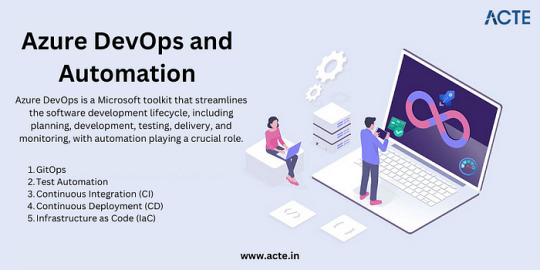
Monitoring and Management
Azure offers robust monitoring and management tools to help IT pros optimize resource usage, troubleshoot issues, and gain insights into their Azure deployments. Best practices for resource management can help reduce costs and improve performance.
Future Trends and Innovations
As the technology landscape continues to evolve, Azure remains at the forefront of innovation. Keep an eye on trends like edge computing and quantum computing, as Azure is likely to play a significant role in these domains.
Training and Certification
To excel in your IT career, consider pursuing Azure certifications. ACTE Institute offers a range of certifications, such as the Microsoft Azure course to validate your expertise in Azure technologies.

In conclusion, Azure’s evolution is a testament to Microsoft’s commitment to cloud innovation. As an IT professional, understanding Azure’s history, service offerings, global reach, security measures, and future trends is paramount. Azure’s versatility and comprehensive toolset make it a top choice for organizations worldwide. By staying informed and adapting to Azure’s evolving landscape, IT pros can remain at the forefront of cloud technology, delivering value to their organizations and clients in an ever-changing digital world. Embrace Azure’s evolution, and empower yourself for a successful future in the cloud.
#microsoft azure#tech#education#cloud services#azure devops#information technology#automation#innovation
2 notes
·
View notes
Text
"Expert DevOps Consulting Services in Delhi | Goognu"
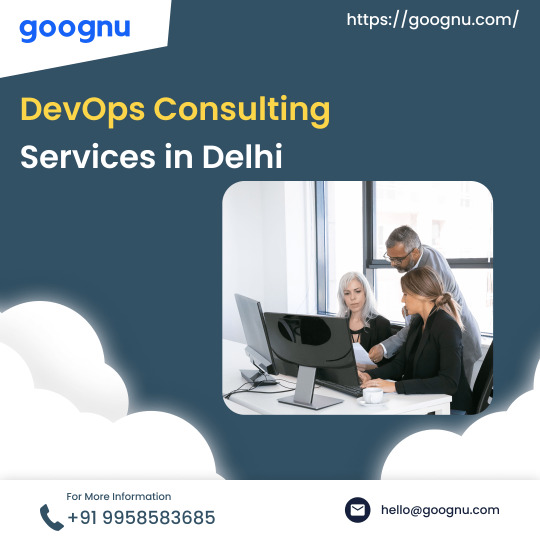
"Looking for expert DevOps consulting services in Delhi? Goognu offers tailored solutions to streamline your software delivery, automate processes, and enhance collaboration. Propel your DevOps strategy with Goognu. Contact us today for exceptional DevOps consulting services in Delhi and optimize your software development lifecycle with efficiency and agility."
1 note
·
View note
Text

Partner with us to realize the complete capabilities of DevOps and fast-track your progress toward ongoing enhancement and operational excellence. Read More...
0 notes
Text
Product Engineering in Software Engineering: Latest Trends
Explore how Product Engineering in Software Engineering drives innovation with AI, cloud, low-code, and modern development trends.
Building digital products today requires more than just good code. As a result, companies are shifting to smarter product development methods. As businesses strive to meet rising customer expectations, they often seek help from a software product engineering services company.
These companies combine technology, design, and strategy to bring innovation faster and more reliably.
Therefore, let’s explore how product engineering in software engineering is evolving and what trends are shaping its future.
Why Product Engineering in Software Engineering Drives Modern Products
The idea behind product engineering in software engineering is to build digital products that solve real problems quickly and efficiently. Rather than creating products in silos, teams now work together using shared goals, fast feedback, and constant iteration.
Continuous Discovery
First of all, product teams no longer wait months to understand customer needs. Instead, they perform weekly research sprints to validate every new idea. These discoveries reduce rework and help create user-focused solutions from day one. Furthermore, continuous discovery aligns the product vision with real-time market shifts.
Secure by Design
In the past, security was a final step in the product life cycle. Now, developers integrate security scans into their daily coding process. This proactive approach prevents threats and saves time on future fixes. Additionally, building security from the start improves trust and reduces compliance risks………….
#Product Engineering in Software Engineering#Software Product Engineering Services#AI in Product Development#Low-Code Development#Cloud Product Engineering#Edge Computing Trends#Composable Architecture#Responsible AI#Hyper-Personalization#Sustainable DevOps#Digital Product Innovation#Future Skills for Product Teams#Cloud-Native Security#Continuous Discovery#Irom Technologies
0 notes
Text

😈☁️ “What do you truly desire… in the cloud?” Smooth scalability? Zero downtime? A CI/CD pipeline that sings? Welcome to the Lux of cloud services — AWS Cloud Integration by ITIO Innovex.
We don’t just migrate your data — we charm it into high-performance, secure, scalable systems with AWS architecture designed for kings and queens of scale.
Lucifer would never settle for less than elegant execution. Neither should you.
#crypto#cybersecurity#digital banking licenses#digitalbanking#fintech#investors#white label crypto exchange software#bitcoin#digital marketing#financial advisor#awscloud#aws consulting services#aws training#aws course#aws cloud consulting services#aws services#cloudcomputing#devops#cloudmigration#techsolutions#software#itioinnovex
0 notes
Text
#IT services#Web development#Cloud computing#AI & machine learning#DevOps#UI/UX design#Mobile app development#Software engineering
0 notes
Text
What is DevOps: Guide to Revolutionizing Software Development and IT Operations- OpsNexa!
Explore the world of DevOps in this detailed guide, uncovering its principles, practices, What is DevOps, and tools that bridge the gap between software development and IT operations. Learn how DevOps enhances collaboration, speeds up software delivery, and improves quality.
#Devops#devops services#devops consulting#devops solutions#devops integration#cloud devops#devops automation
0 notes
Text
Incloudo Revolutionizes Cloud Solutions with Cutting-Edge DevOps Automation Services
Incloudo emerges as a premier Indian cloud consulting firm by combining its advanced knowledge of DevOps Automation Services with AWS Cloud Management and Managed Cloud Services. The mission of Incloudo enables global business empowerment through its innovation and best practice use which speeds up development cycles and minimizes operational risks and facilitates sector-wide digital transformation.
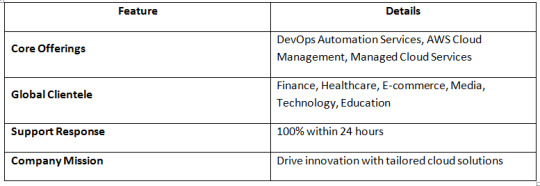
What Makes Incloudo Different?
As a consulting enterprise Incloudo stands beyond regular practice since it serves as an innovation resource. The company delivers industry-specific infrastructure solutions which combine scalable and reliable performance with compliance requirements for every business challenge it supports.
Why businesses choose Incloudo:
Personalized cloud-native solutions.
Expertise in Infrastructure-as-Code (IaC), CI/CD, and continuous monitoring.
Proven record in reducing time-to-market and boosting software quality.
Unmatched customer responsiveness and global coverage.
What Is DevOps Automation—and Why Does It Matter?
DevOps Automation is the systemization of tasks throughout the Software Development Lifecycle (SDLC). It replaces manual interventions with automated pipelines, improving speed, reliability, and collaboration between development and operations.
Key Components of DevOps Automation Services:
Continuous Integration/Continuous Delivery (CI/CD)
Infrastructure-as-Code (IaC)
Configuration Management
Continuous Monitoring
Benefits of DevOps Automation Services with Incloudo
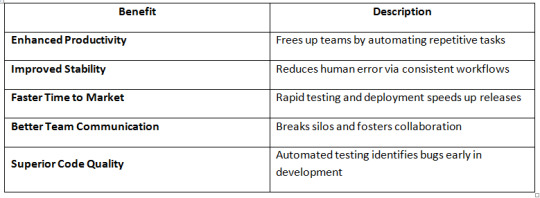
“Automation is not just a buzzword at Incloudo; it’s a foundational strategy that empowers our clients to innovate fearlessly,” says one of the lead DevOps architects at Incloudo.
Real-World Applications by Industry
Incloudo’s DevOps automation solutions are transforming organizations in diverse industries:
Finance & Banking: Enabling secure, compliant infrastructure for rapid transactions.
Healthcare: Delivering HIPAA-compliant cloud platforms for digital health services.
E-commerce: Powering high-availability systems for global shoppers.
Media & Entertainment: Streaming-ready infrastructure with zero downtime.
Education: Scaling virtual classrooms with smart automation.
Power Tools for Every Stage of Automation
Here’s a glimpse into Incloudo’stoolbelt:

Best Practices in DevOps Automation
Incloudo advises businesses to adopt the following automation best practices for optimal success:
Build strong CI/CD pipelines: Automate every step from code commit to deployment.
Automate infrastructure from Day 1: Use IaC to manage servers and configurations.
Promote collaboration: Encourage DevOps culture and cross-team visibility.
Adopt Agile methodologies: Iterate fast, fail fast, and improve continuously.
Monitor everything: Proactive tracking ensures early detection of anomalies.
Incloudo’s Vision for the Future
Incloudo is not just solving today's cloud challenges—it’s future-proofing businesses. With a passion for continuous innovation, Incloudo is expanding its DevOps Automation Services and cloud capabilities to help organizations adapt swiftly in an ever-evolving digital world.
“Whether you're a startup looking to scale fast or an enterprise seeking optimization, Incloudo is your trusted partner in cloud transformation,” says the CEO of Incloudo.
0 notes
Text
Debating between Pulumi and Terraform for Infrastructure as Code? Dive into our latest article to uncover the strengths of each and discover which tool suits your needs best. Don't miss out on this essential read:
2 notes
·
View notes
Text
Product Engineering Services for Modern Software Solutions
Modern software solutions take a comprehensive approach to designing, developing, testing, and maintaining software products throughout their lifecycle. This covers everything from initial product ideation and strategy to post-launch support and ongoing improvements. A product engineering services company plays a vital role in this process, assisting businesses in developing robust, scalable, and user-friendly software that meets market demands and user needs. Innovation is now necessary and no longer optional.
That’s where product engineering services play a transformative role. By bridging the gap between idea and execution, these services enable organizations to launch, scale, and maintain robust software solutions in a competitive landscape. From startups aiming to disrupt markets to enterprises modernizing legacy systems, the demand for intelligent, scalable, and agile software continues to grow rapidly. Fortunately, with the right approach to product engineering, even complex ideas can be transformed into high-performing digital products.
Importance of Product Engineering for Modern Software Solutions
To begin with, product engineering services cover the entire lifecycle of a software product, from ideas and design to development, testing, deployment, and maintenance. This comprehensive approach ensures that products are not only functional and user-friendly but also scalable and ready for the future.
Moreover, these services are typically offered by specialized teams with diverse skills, allowing for agile practices, rapid prototyping, and quicker time-to-market. Whether it’s mobile apps, SaaS platforms, enterprise tools, or IoT systems, product engineering plays a vital role in building the digital foundation of modern businesses………….
#product engineering services#software product development#digital product engineering#agile product engineering#scalable software solutions#software lifecycle management#product innovation strategy#cloud-native development#DevOps integration#modern software architecture
0 notes